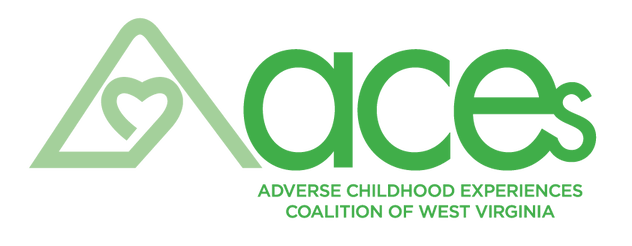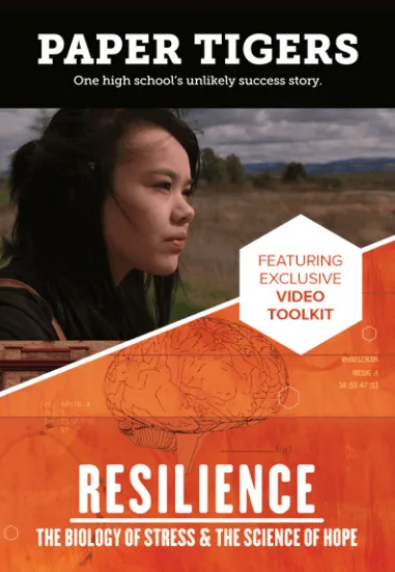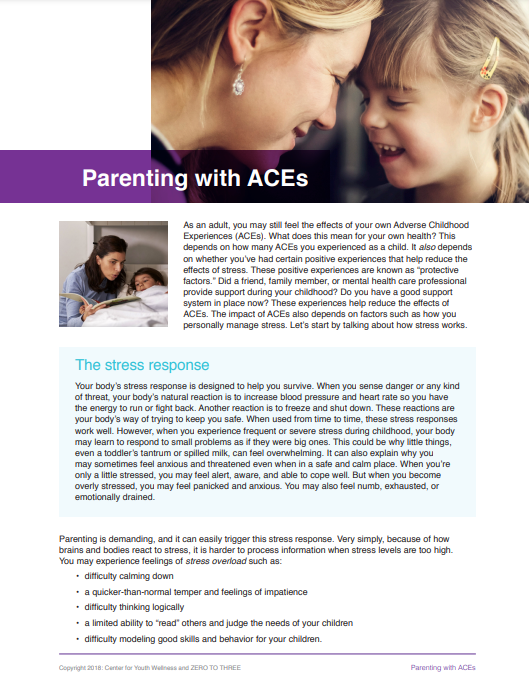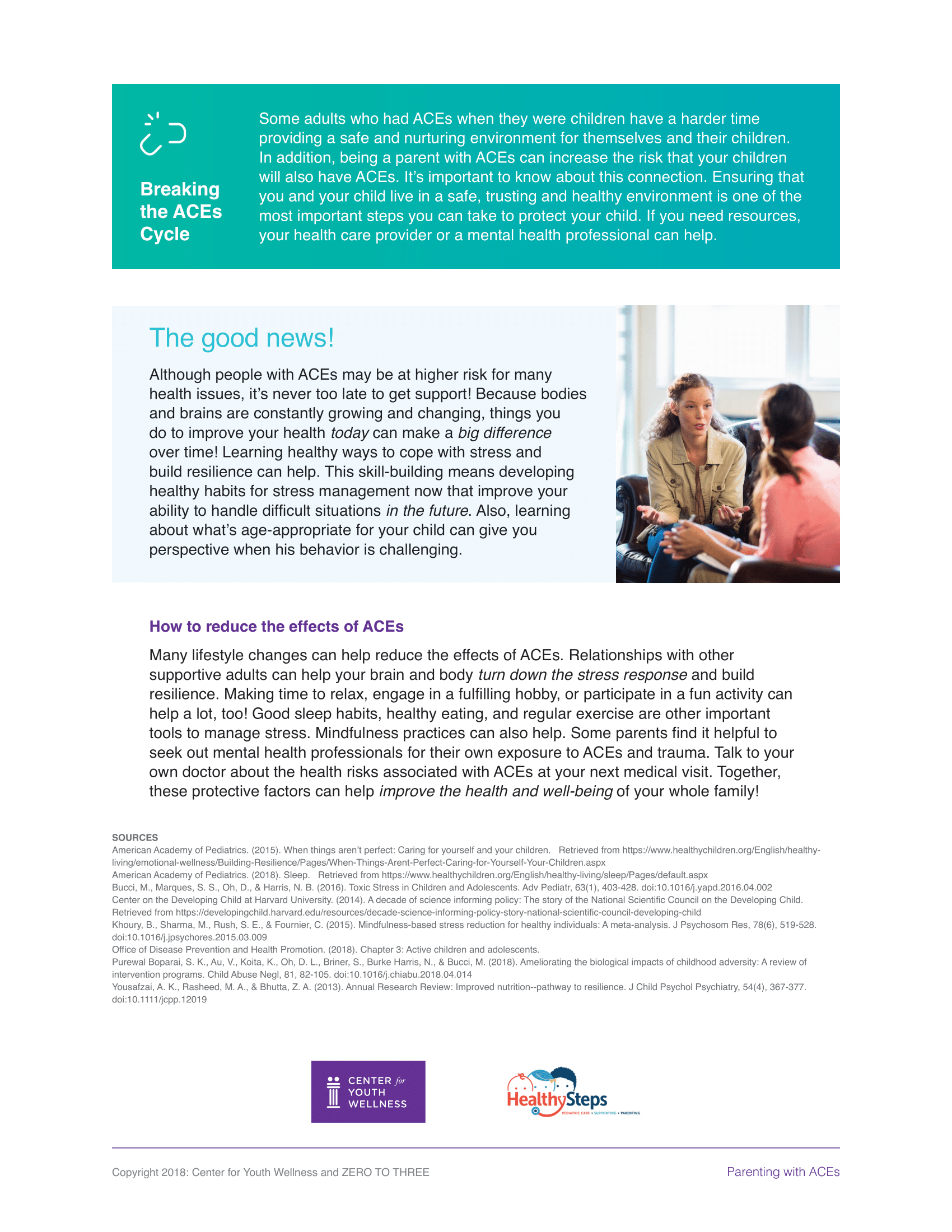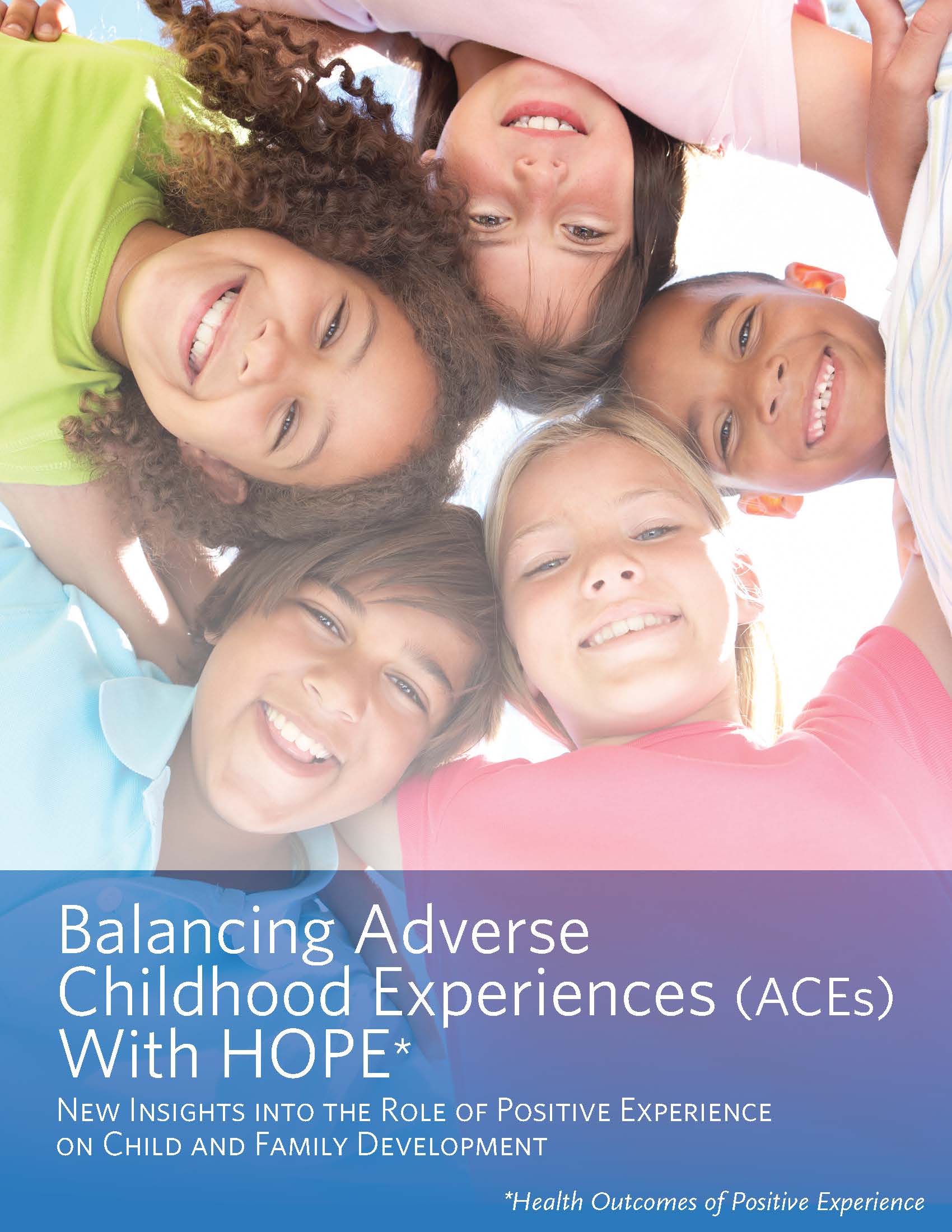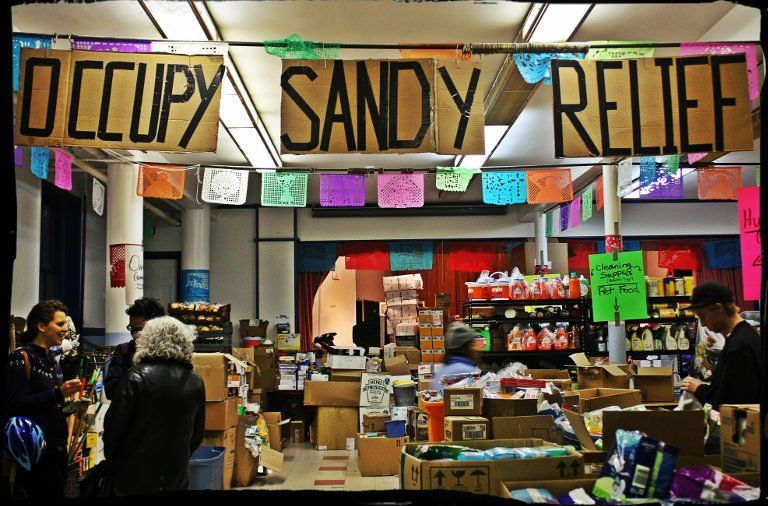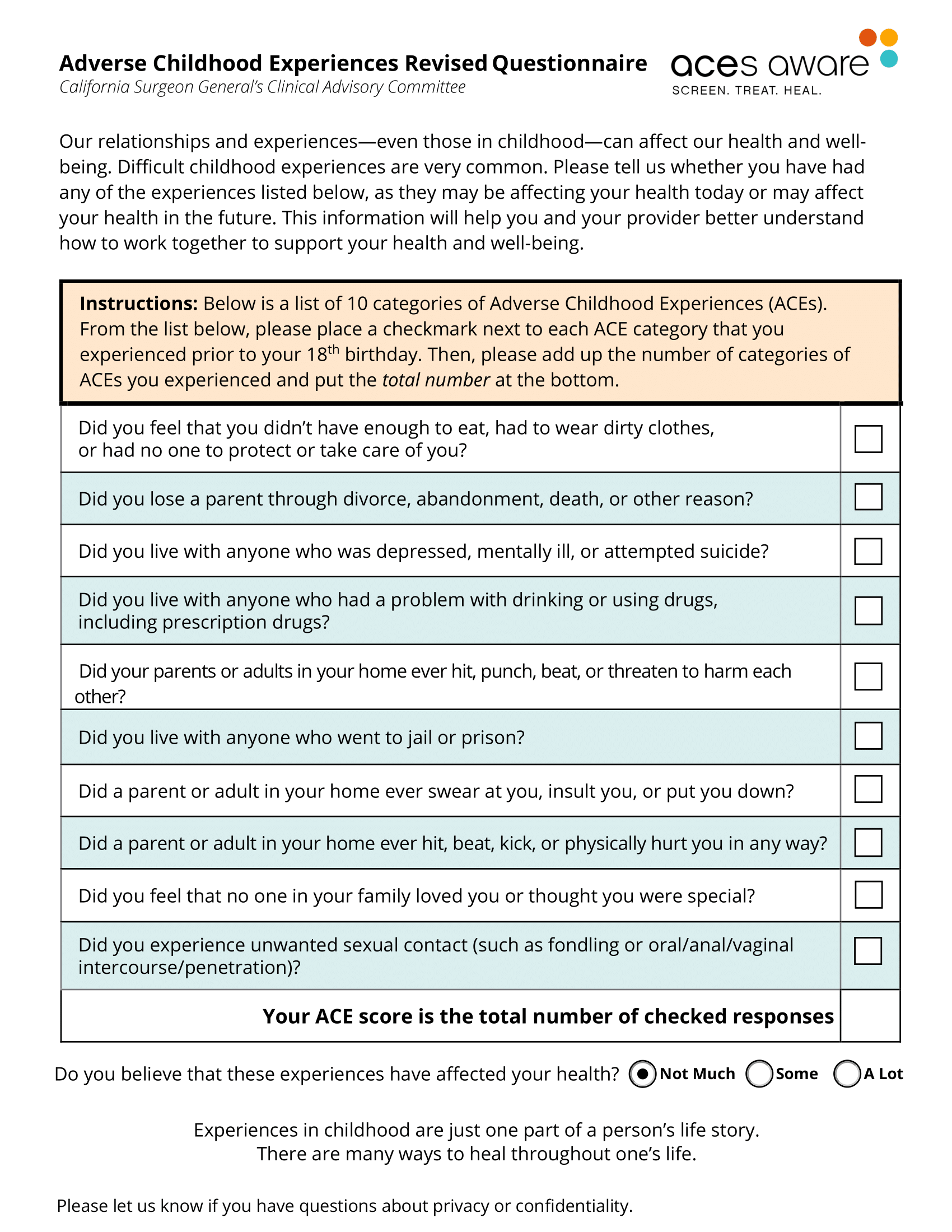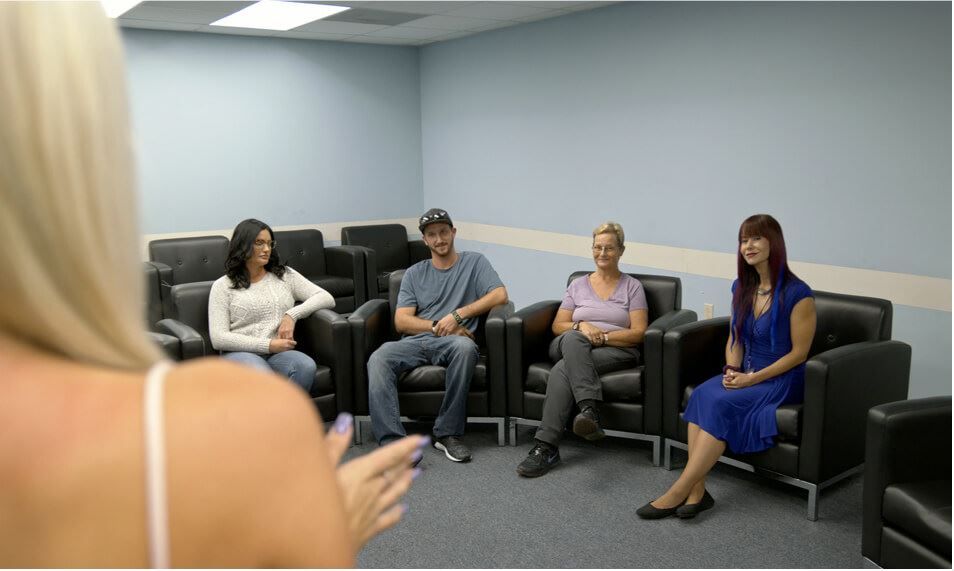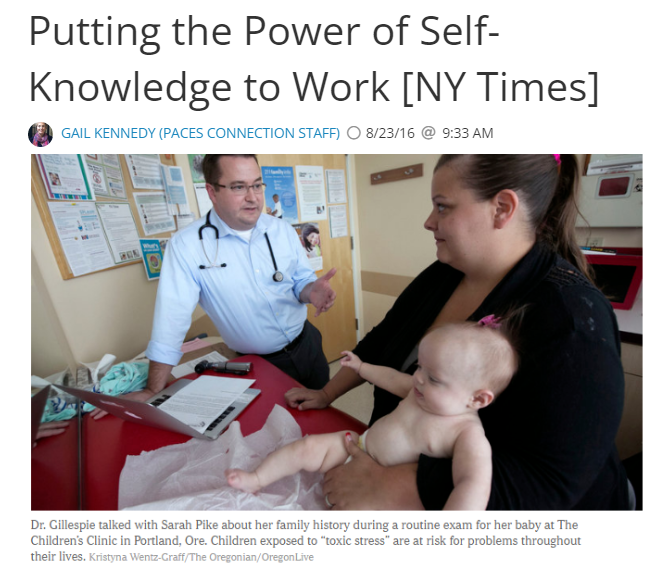Resources
Here are some resources for understanding ACEs and even helping a child in your life build resiliency through trauma-informed care and guided self-care opportunities.
Video Resources
Why is it important to learn about ACEs?
Childhood experiences, good and bad, have a tremendous impact on future violence victimization and perpetration, and lifelong health and opportunity. The goal of the Adverse Childhood Experiences (ACEs) study was to determine how common ACEs are in the United States and to examine whether there is a relationship between ACEs and later-life health and well-being.
The study found that ACEs are preventable, and their prevention has the potential to improve the lives of millions of Americans. CDC works to prevent ACEs by supporting state and local efforts to prevent violence and promote safe, stable, and nurturing relationships and environments for all children and families.
ACEs Films Resilience and Paper Tigers
Offered by The WV ACES Coalition and TEAM for WV Children.
Articles & Blogs
Parenting with ACEs
As an adult, you may still feel the effects of your own Adverse Childhood Experiences (ACEs). What does this mean for your own health? This depends on how many ACEs you experienced as a child. It also depends on whether you’ve had certain positive experiences that help reduce the effects of stress.
These positive experiences are known as “protective factors.” Did a friend, family member, or mental health care professional provide support during your childhood? Do you have a good support system in place now? These experiences help reduce the effects of ACEs. The impact of ACEs also depends on factors such as how you personally manage stress. Let’s start by talking about how stress works.
Harvard Guide to Toxic Stress
Chances are, you’ve heard or read something about toxic stress—maybe from the media, from a physician or other medical professional, or from a family member, friend, or neighbor. You may feel overwhelmed by all of the toxic stress information out there.
And, unfortunately, it’s very easy to find misleading or incorrect information. The Center on the Developing Child created this Guide to Toxic Stress to clear up the confusion and help you learn the facts about toxic stress step by step.
Adverse Childhood Experiences Revised Questionnaire
Our relationships and experiences—even those in childhood—can affect our health and wellbeing. Difficult childhood experiences are very common. Please tell us whether you have had any of the experiences listed below, as they may be affecting your health today or may affect your health in the future. This information will help you and your provider better understand how to work together to support your health and well-being.
